Search
Did you mean: Ife?
Search Results
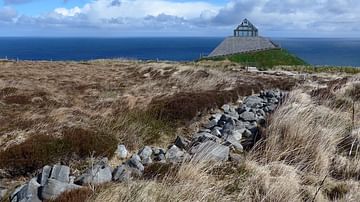
Definition
Ceide Fields
The Ceide Fields, near Ballycastle, Co. Mayo, on the western coast of Ireland, are recognised as one of the oldest and largest Stone Age farming sites in the world, dating back to c. 3700 BCE. The walls that have been discovered so far, rest...
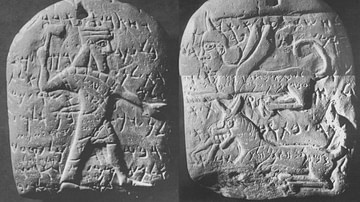
Definition
Arslan Tash Amulet
Dated to the 7th century BCE, the Arslan Tash amulet (AT1) was discovered in Arslan Tash, Syria and contains the writing of Phoenician, magic incantations. The limestone plaque includes a variety of features: incantations perceived to prevent...
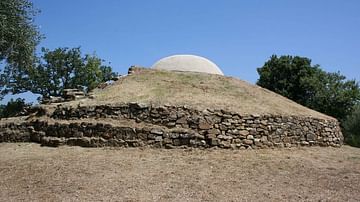
Definition
Vetulonia
Vetulonia (Etruscan: Vetluna), located in the hills near the western coast of central Italy, was an important Etruscan town from the 9th to 3rd century BCE. The site has many impressive tumulus tombs which were rich in artefacts illustrating...
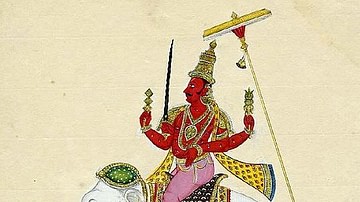
Definition
Indra - The Vedic Religion's Greatest God
The anthropomorphic god Indra was the most important god in the Vedic religion and he later became a major figure in Hinduism and an important deity in Buddhism, Cham and Chinese tradition. For the Aryas he was their national god and he was...
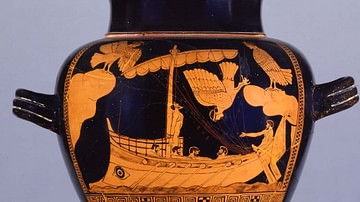
Definition
Odyssey - Homer's Epic Poem of Redemption
Homer's Odyssey is an epic poem written in the 8th century BCE which describes the long voyage home of the Greek hero Odysseus. The mythical king sails back to Ithaca with his men after the Trojan War but is beset by all kinds of delays and...
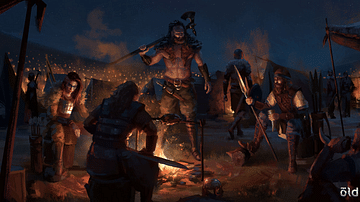
Article
Vikings in Wales
The Norse may have ruled parts of northern Wales in the early 11th century, specifically in Anglesey and Gwynedd, though the degree to which is unclear. Old Norse had relatively little impact on Welsh linguistics, and the Old Norse influenced...
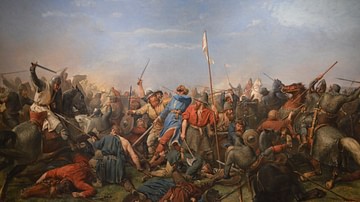
Article
Battle of Stamford Bridge
The Battle of Stamford Bridge in Yorkshire, England on 25 September 1066 CE saw an army led by English king Harold II (r. Jan-Oct 1066 CE) defeat an invading force led by Harald Hardrada, king of Norway (r. 1046-1066 CE). Hardrada, aided...
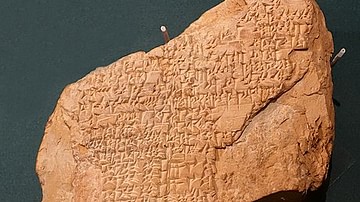
Article
Inanna and Ebih
Inanna and Ebih is a Sumerian/Akkadian poem attributed to Enheduanna (l. 2285-2250 BCE), daughter of Sargon of Akkad. The work's original title is Inninmehusa ("Goddess of the Fearsome Powers") and tells the story of the goddess Inanna's...
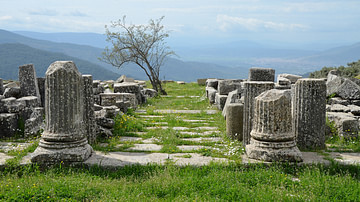
Article
Top 10 Archaeological Sites in Caria, Turkey
Located at the crossroads of many ancient civilizations, Turkey is a haven for archaeology lovers. Over the centuries, a succession of empires and kingdoms – Hittite, Lydian, Persian, Greek, Roman, Byzantine and, finally, Ottoman – ruled...
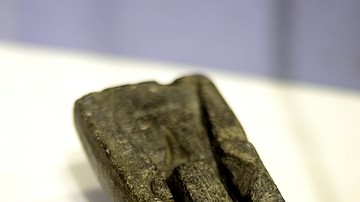
Image
Mould for Palstave Axes from Ancient Ireland
Mould for palstave, a form of early Bronze Age axes, found near Dromore, Co. Down, Ireland, 1500-1000 BCE.
National Museum of Ireland-Archaeology, Dublin.